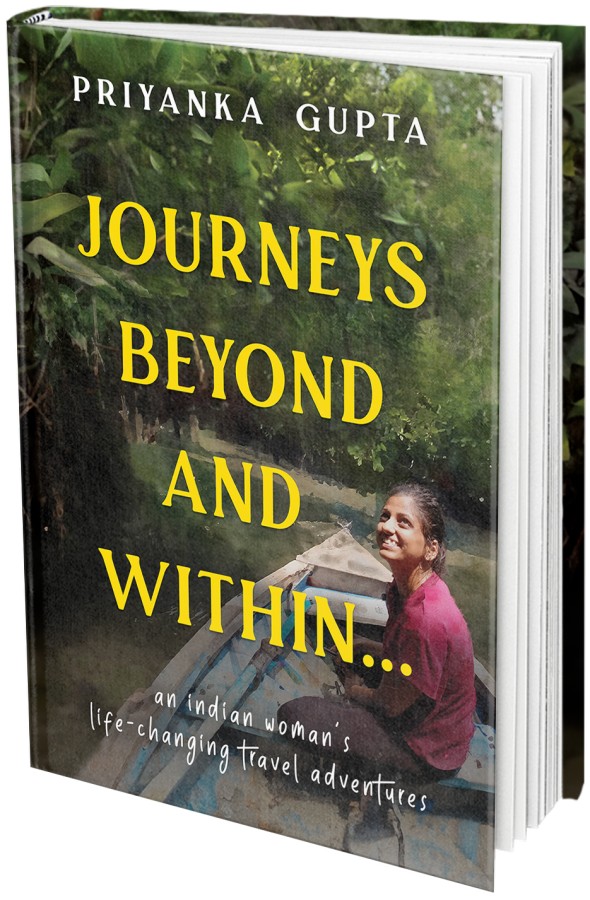What Makes Writing Good and Some Principles of Effective Writing
What is Good Writing?
- We write the best when we write to understand our ideas and opinions, not to publish. Much of our beloved writer Woolf’s work (her diaries, Street Haunting, a Room of One’s Own) reads like her efforts towards self-understanding.
- Good writing shows the meaning of all this without any judgment and scorn.
- Every piece of great writing tells a story and is made up of many sentence-length stories. Those sentence-length truths grow upwards like the branches of a beautiful tree. One branch comes out and a little bit of the trunk rises. Now some leaves sprout and a couple more branches peek towards the sky. And the tree is pulled upwards and onwards. And this tree has to grow patiently. A fast-growth tree — one that was impatient and in its haste is now not so dense — may crash in a storm or is wrung down by fungus (read more in the Hidden life of trees). Similarly, our rattling set of ideas can be shaken down by an interjection or the clatter of a red-billed blue magpie may take the reader’s attention away. The ideas are set down patiently word by word to endure any thunder.
- We plant the right tree since the beginning otherwise the roots penetrate deep enough never to leave. How we weave the branches and leaves around the tree’s depth and rings makes our writing effective, or not.
- Good writers care. So they must wait for the right story to come to them? No. As long as they are up and alive whether asleep or awake they sow and sow until the right tree sprouts. (that’s why good writers write even when they don’t feel like writing and then the juices flow.)
- Every line of Woolf, Proust, Tolstoy, Tagore, Camus, and Sagan is the discovery of universal truth. There is no new idea. There are only different forms of expressing them.
- A good piece of writing gives us a 360-degree view of the matter from the inside out. It conveys all the manifestations of the notion since its origin.
- Every character in our writing should earn its place. We ask ourselves — is this the funniest, shortest, most impactful, most logical, the truest way to express the thought. We run this test until we are satisfied. (27 practical tips for beginning writers.)
- Yes, we want fun. I want fun. A little bit of fun goes way longer than everything else.
- One of the most important qualities of good writing: even if the writing is anonymous and we are subjugated to it at 2 in the night, we know we have witnessed something divine. As if we have woken up in front of eternal bliss — the true meaning of life — the only one there can be. That moment beholds a lifetime.
A drop in the ocean,
and an ocean in a drop.
A moment in life,
and a life in a moment.
- Good writing arises deep-ringing emotions within us. These emotions cradle us. We ride on their waves, are thrown under in despair, and surf above when elated.
- Our heart is colored with the novel’s emotions and ideas.
for us, the sun sets when it sets in the story
and not outside our window behind the pine,
the moon rises when it rises in the story,
and not beyond the bamboos across our cottage.
- Beautiful writing shows the initiation of love in its vulnerable infant sapling form and then it takes over the entire being with all its limitations and jealousies. We witness fallouts, marriages, lives, and deaths. Landscapes and rivers come to life in front of our eyes. Jungles sprout up and dry down. We see mentalities changing and societies coming to life. Methodologies and ideologies collide. We hate wars, but in good writing, we admire the warriors’ courage as the most sincere reality. (42 handpicked Marcel Proust’s quotes to confirm)
- The writers may have used semicolons, commas, archaic words, long sentences, and parentheses. We may have to read some phrases many times. But we still insist that those constructions are perfect.
- Ideas of great writers fit together.
- One of the characteristics of good writing is that you aren’t isolated from the author’s experience. You don’t feel the author is special. You relate with her. You think of her as one of you. She is not talking at you but rather talking to you.
- The writers didn’t become magnificent because they had such and such notions. But the writers’ persistence and perseverance of the ideas make them extraordinary. They seem really kind and benevolent but are mostly helpless because they can’t help being the porous sculptures through which their thoughts flowed unrestricted.
- The readers didn’t know they needed truth. But now having read the story they feel complete — even if the ending wasn’t expected, even if it was the unhappiest story, even if it was a dream out of their reach. The story has brought their life to a full circle.
- The preamble isn’t stronger than the climax and the middle doesn’t trail behind the forward — good writing flows like a river. (life also flows like a river, unhindered)
- Every little part of the bigger body of writing has enough strength to run with the story piggybacking them.
Why do we write,
I do not know whether you ever went down to the Matanza river in your pig-tail days to fish and caught a toad fish. You know if they are swallowed by a big fish, they will eat their way out through the walls of its stomach. That is like the call to write. You must do it irregardless, or it will eat its way out of you anyhow.
Zora Neale Hurston. (Excerpts from Daily Rituals Women at Work: How Great Women Make Time, Find Inspiration, and Get to Work by Mason Currey.)

How to be Good at Writing? Some Basic Principles for writing well.
- Underneath the ground, roots connect. But you have to let them grow. You give them time to find each other. Write until then. Wait until then.
- You are the artist of your work. You are the artist of your relationships. You are the artist of your body and mind. Think about the work at hand only and do every bit of it the same. (Creative living is the best form of living)
- Don’t think while you write. Then how will I write? Think about what you have to write. (ideas on mindfulness)
- Don’t think about submitting while writing.
- Don’t worry about the accolades. Applause can give a direction but nothing more.
- If the sky is dark and cloudy, fill it with your colors. Make a reader smile.
- See the world, soak it in, and let the memories bleed on the paper.
- Write. Listen to your heart. Write.
- Don’t be jealous if a new writer’s ghost story leaves you terrified. See how much she wrote and what she read and how many ghosts did she let her haunt first.
- Why do you talk as if you are finished and you are 60 and you wrote brilliant when you were 20 and then you lost your charm? You have the charm. Read and write and write and read. Do not worry.
- Don’t mingle in too many things. Write. Be here. Be who you can be. Let the Nietzsche inside you know that you are ready to walk even when you have reached where you were supposed to arrive.
- Be random. Be chaotic. Be organized. Be what you have to be to become who you are.
- The words of the inhabited world have to be strung the tightest else we will lose the tautness of our narration along with the attention of our readers.
- If you are a writer, you can’t be lazy.
- You need to give words the time they want to be penned down. Everything takes time. Don’t rush. Learn to love the process of doing.
- The writing won’t be seamless if you haven’t unraveled your idea without mercy.
- A popular comedian and a brilliant storyteller Zakir Khan said, “even if I tell an obvious or a cliched joke, I tell it differently.” Even if he took an old joke, instead of just saying it, he pondered over it, he played with it for a second. He must love telling jokes because when we get a readymade recipe we usually want to dough it out. But he thought about what could he do differently and did it. That’s the difference between those who care and those who don’t.
- The more repetitions you do the more sincerely you do them.
- The principles of good writing apply to every other work too.
- Stitching a skirt, driving a bus, walking on the street, harvesting honey, cutting a pineapple, parasailing above the Himalayas, diving into the oceans, running a textile shop, making pots and pans, stuffing the mattresses with cotton, ironing the clothes, growing maize, writing code, or making tomato soup — all works need care, consistency, honesty, patience, and an unfiltered medium to pass through to flourish. (more creative routines and practices I follow and experts advise)
Now we all know this — look beyond the obvious, be patient, observe, write, edit. Then what’s the problem?
Nothing. Writing is a matter of time. It is a matter of how well do you see your stories. If you see them well enough, you can practice the art of telling.
What worked for other people or artists may not work for you. These are only guidelines. You might be doing well your own way. Go on then.
All these tributaries of your thoughts first need to form the Ganga of your art.
Rather than finding the banks, flow first. Flow first. Flow first.
And then the words will take you so high our earth wouldn’t be visible. Then they will pull you, swing you, and let you loose.
Some books that have made my writing journey what it is now,
- Bird by Bird by Anne Lamott
- On Writing by Stephen King
- How to be a Writer by Ruskin Bond
- Daily Rituals Women at Work by Mason Currey (not a book on writing tips but a great one on how to practice any art)
- The Elements of Style by William Strunk Jr. and E. B. White
- Big Magic: Creative Living Beyond Fear by Elizabeth Gilbert (for the inspiration)
- Everything By Virginia Woolf
What is effective writing for you? Tell me some elements of good writing in the comments.
*****
My much-awaited travel memoir
Journeys Beyond and Within…
is here!
In my usual self-deprecating, vivid narrative style (that you love so much, ahem), I have put out my most unusual and challenging adventures. Embarrassingly honest, witty, and introspective, the book will entertain you if not also inspire you to travel, rediscover home, and leap over the boundaries.
Grab your copy now!
Ebook, paperback, and hardcase available on Amazon worldwide. Make some ice tea and get reading 🙂
*****
*****
Want similar inspiration and ideas in your inbox? Subscribe to my free weekly newsletter "Looking Inwards"!


